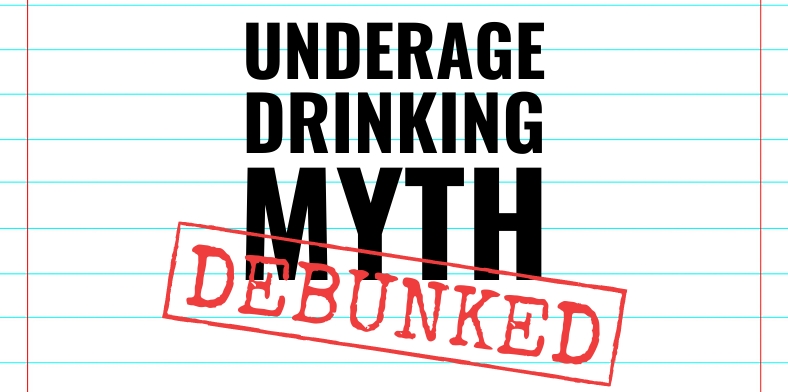Underage Drinking Myth, Debunked

Most teens don’t drink regularly. Why do so many East Texans believe the myth that they do?
One of the questions we ask students during alcohol presentations is “What percentage of teens do you think drink regularly?”
More often than not, students think that most of their peers drink regularly.
Sometimes, this is reflected in comments from parent as well (although parents seem to think it is everyone else’s students who are drinking, not theirs).
That is not reflected in the data from the Texas A&M Texas School Survey. Every two years, researchers survey 7-12th grade students at schools across the state. They also break down the data by region. To measure current or regular use, researchers anonymously ask students if they have used alcohol in the last month. They even have ways to weed out the students who have been less than truthful.
In our East Texas region, Health Region 4, only 30% of 7-12th graders have used alcohol in the last month. Even 12th graders, who report the highest rates of use, at 43% still have less than the majority of students who drink regularly.
Do we want to see these percentages come down even further? Absolutely. Our substance abuse coalitions continue to work on the issue. We’ve already made great progress; from 2016 to 2018, the TSS reported a 9% reduction in regular alcohol use in this area, the largest reduction in the state. We know that what we’ve been doing—educating students about refusal skills and healthy coping skills, empowering parents to talk to their teens about drinking and discouraging them from providing alcohol—works. And as these messages spread, we have hope that we can get that 30% of East Texas students who drink regularly even lower.
We are also passionate about continuing to spread the message that most students don’t drink. Why? Because research shows flipping that narrative works. Think about it: Teens (and all of us, really) want to feel like they belong. If they believe that most of their peers are drinking, they feel more pressure to drink to fit in. If we flip that script and spread the truth around East Texas that most teens are making healthy choices, some of that pressure to drink is lifted off our students.
Next time you talk to your teen about alcohol (make these conversations casual and regular, by the way), be sure you bust the myth that most of their peers are drinking.
